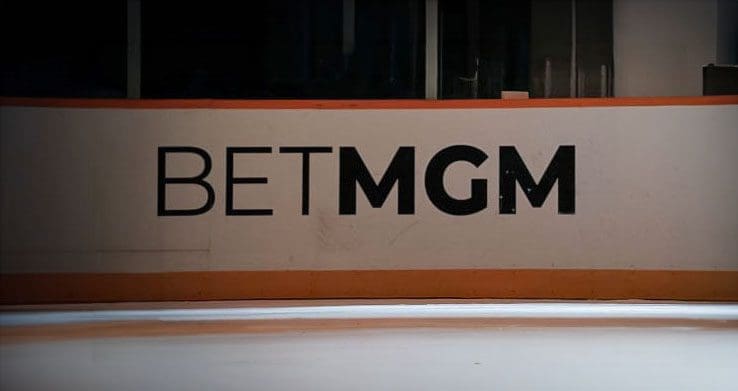Nashville Predators
Brewer: After Shane Pinto Suspension, NHL Needs To Clarify Gambling Rules

It’s been widely publicized that the NHL issued its first gambling-related suspension, hitting Ottawa Senators forward Shane Pinto with a 41-game suspension.
Pinto is currently a restricted free agent and hasn’t laced up the skates this season as he and Ottawa were trying to grind out a deal. But all of that came to a halt when the NHL approached the Senators front office about their investigation into potential gambling, presumably arising from a tip within one of the league’s gambling partners.
A gambling-related suspension is something the NHL has not yet had to directly deal with since the 1940s, and a few things have changed since then. In their press release, the NHL kept the details close to the vest:
The NHL announced today that it has suspended Shane Pinto for 41 games for activities relating to sports wagering. https://t.co/AvOhmVCVOc pic.twitter.com/3jI32Wu4T2
— NHL Public Relations (@PR_NHL) October 26, 2023
“The League’s investigation found no evidence that Pinto made any wagers on NHL games.”
On its face, the NHL’s statement made it seem like a player who had not violated any written rules was suddenly suspended for 41 games just because.
The collective bargaining agreement has one simple sentence regarding gambling contained in Exhibit 14(2): Gambling on any NHL game is prohibited.
The NHL emphasized this point in a memo sent to NHL teams outlining that the action taken by any personnel is prohibited. Simple enough, right? Don’t bet on your own games or league. After hearing this, I made a thread on X sharing my initial thoughts, which can be read here.
TSN’s “Hockey Insiders” broke down the situation further, stating that a settlement was reached between the NHL and the NHLPA where Pinto would accept the suspension and not seek an appeal. There’s also a confidentiality clause that states neither side can discuss the details on or off the record.
This immediately points to there being more to the story than simply placing a wager on a “Monday Night Football” game, thus my initial reaction needed more context.
The fact that the suspension will not toll until Pinto signs a contract is a very important aspect of the settlement too. This means that the games that Pinto has already sat out for lack of a contract will count toward the 41-game total. He won’t be eligible to play this season until Jan. 21 against the Philadelphia Flyers.
Due to the confirmation that betting on NHL games was not a part of the investigation or suspension, many are speculating about the potential of proxy betting.
Tennessee, among like other states where sports wagering is legal, has prohibitions on proxy betting. This means that an individual cannot make a bet on behalf of another on their account whether to override their state our country prohibitions or otherwise. In Chapter 15.1.1. GG of the Tennessee Sports Gaming License Rules, Regulations and Standards, the Tennessee statute defines a “prohibited participant” as one of five types with one being, “any person who makes or attempts to make a Wager as an agent or proxy on behalf of another for compensation (i.e., messenger betting).”
Additionally, 15.1.8C places an additional burden in this regard requiring that “licensees shall record the player’s acceptance of the terms and conditions and privacy policy and acknowledgment that the information provided is accurate and the player is prohibited from allowing any other person to access or use the player’s sports gaming account.”
This language is likely similar elsewhere and is also likely what led to the “curious activity” on Pinto’s account — whatever that may be — that led to the NHL being notified.
How does this affect the Predators?
Hypothetically, if a Nashville Predators player were asked by a player on the Tampa Bay Lightning to make a bet for him on the Super Bowl, it would be advisable that the Predators player decline the request. Alternatively, if a Predators player was in a location where betting is prohibited, like Florida, and a bet was made on the player’s account, that too, would be interpreted as curious activity.
Regardless of the specifics of this particular situation, it does call into question the greater gambling policy and how it relates to professional athletes.
I’ll be the first to tell you, I am pro-sports betting. I believe it provides for a great fan experience. The analytics side of any sport — especially hockey — is utterly fascinating to me. I also do not buy the overarching argument that gambling hurts the integrity of the game. Do problems exist? Absolutely. And they should be addressed, but that does not take away from the overall experience, in my opinion.
If sports wagering in any manner impacted the integrity of the game, then leagues wouldn’t accept millions in sponsorship money and partnership deals, or permit teams to have decals on the team helmets, apparel, side boards, or elsewhere to promote said sports books.
Betting on sports is going to continue, so there need to be clear guidelines in place so players understand exactly what’s allowed and what isn’t. With this being a confidential settlement, it leaves many outsiders and teams in the dark on the specifics of just that.
While those specifics will likely remain confidential, the NHL needs to provide further guidance to teams and players in what conduct is and is not permitted, especially if players can still be penalized even if they do not physically bet on any NHL games and no known criminal or civil cases have been brought about for the violation of any government law or regulation.
Perhaps the violations were merely a breach of the terms and conditions of the particular account, but the underlying issues of there being a lack of clear guidance remains unacceptable. Nonetheless, more than a sentence prohibition in a 500-page document should be provided because players are and will continue to place bets.
Follow Clay Brewer on Twitter/X: @ClayBrewer10
















